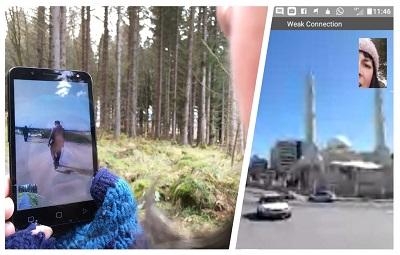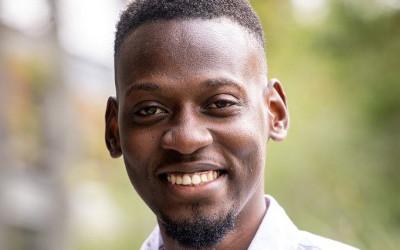Day 115, Year of #Mygration: Walking and Eating, The Arts Of The Local And Global

Today’s blog post comes from Graham Harvey, Professor of Religious Studies at The Open University.
On 25 May I met with Claudia Zeiske amidst the buzz of creativity and conversation at the Tate Exchange’s Who Are We? project. Our conversation largely focused on the roles and potential of art and artists to increase understanding, incite debate and, perhaps, provoke change.
Other blogs in these series replicate the format of conversation. This one is more of a reflection on a conversation of considerable intensity but no stressful tension. This seems appropriate as Claudia’s work is infused with a “50/50 principle” in which putative binaries are brought together to see what happens. In a small booklet about the Deveron Projects she directs in Huntly (a small Aberdeenshire town) some of these are listed: Artist / Community, Ideals / Reality, Tension / Solution, Local / Global, Home / Away, Hospitality / Criticality, Contemporary / Traditional, Young / Old and Out / In. Other seeming oppositions are presented as potentially generative of new approaches and possibilities when brought together.
For the “Who are we?” project, Claudia facilitated a stage in a collaboration between an artist in Scotland, Rachel Ashton, and another in Gaza, May Murad. This is part of an ambitious scheme of working with artists and communities who cannot travel or otherwise physically interact. The Deveron Project has previously involved a number of “Slow Marathons” in which groups separated geographically and in many other ways share experiences of place (home and diaspora, belonging and dislocation), movement (freely or restricted, willing or controlled) and self-understanding. Claudia does not sit remote from these practices but, for example, made a pilgrimage from her current home in Scotland to her childhood home near Munich, Germany, documenting the journey by picking, preserving and (eventually) artistically presenting oak leaves.
Just as Claudia’s journey involved reflection on global and local citizenship, on current affairs (including Brexit), and on matters of personal concern, the practice of synchronous or asynchronous and locative or dislocated Slow Marathons encourages all participants to engage more fully with others and with places and communities. While hosted at a Friday Lunch (another regular Deveron Projects practice), we joined Rachel Ashton and May Murad by video to gain a more visceral experience of their work together and of the lives of the families and communities around them.
During their collaboration, the two artists exchanged filmed and painted views of their places and organised Slow Marathons (“Walking without walls”) in their places with distinctive challenges. The particular restrictions constraining the “right to roam” are made clear as the two artists shared their work. They also created journals of local plants and plant-knowledges, shaped each other’s efforts to portray both rural Aberdeenshire and urban Gaza. Their work, shared with us in varied media, made contrasts more familiar and stark but also demonstrated the shared-ness of this one world and one era. The here and the now come into sharper focus.
In my research among Indigenous people, I have been interested in similar questions about relations with places, homes and diasporas, here and away, borders and belongings. In particular, I have spent time at cultural festivals organized by Indigenous peoples (e.g. the Sámi organised Riddu Riđđu festival) gaining appreciation and understanding of the provocative power of “traditional” modes of practice and presentation. As Indigenous performers and artists from all round the world collaborate together they further shape creative possibilities of the kind facilitated by Claudia Zeiske and her colleagues.
Quarterly Review of Research
Read our Quarterly Review of Research to learn about our latest quality academic output.

Contact our news team
For all out of hours enquiries, please telephone +44 (0)7901 515891
Contact details